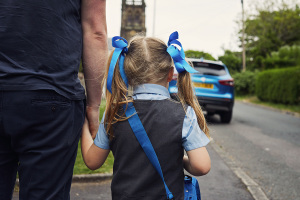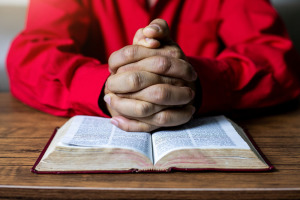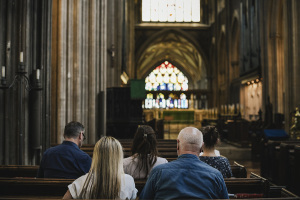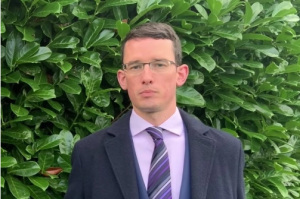Military Atheist Group Unhappy With Christian Majority Chaplaincy in VA Care
The Military Association of Atheists and Freethinkers say it is seeking an alternative to the services provided by Christian and other faith-based chaplains in VA hospitals and hospices. The group is campaigning for more secular humanist representatives for veterans – the equivalent of chaplains for non-believers.
As part of the atheist group's campaign, its president released a letter written by Vietnam veteran Phil Heycock before he succumbed to cancer during an extended stay at a VA hospice.
"Currently, religious, theistic oriented Chaplains are on staff and visit patients including secular humanist atheists like myself. While the Chaplains have been friendly, according to their Christian beliefs I will be burning in hell after my demise. While I respect their right to believe as they wish, I don't find their perspective on death comforting," wrote Heycock.
MAAF President Jason Torpy said that Heycock expressed that he received good quality care but felt that the Christian chaplains generally available were not comforting to him as a secular humanist. "He also requested the letter be held until after his death to avoid alienating his caregivers, whom he knew to be religious," stated Torpy.
Chaplain (Col.) Ron Crews, executive director for the Chaplain Alliance for Religious Liberty, told The Christian Post on Monday that he feels that VA chaplains are doing their best to accommodate everyone and that the MAAF is using the letter in an effort to gain public support.
"It appears to me that there is no problem, but this organization wants to create a problem to justify their request to become an endorsing agency for chaplains," said Crews. "According to their statement the VA chaplains did everything they could to accommodate the needs and requests of atheist and free-thinker patients.
"These chaplains honored the finest traditions of VA chaplains of either performing services directly or providing someone who would be able to meet a need the chaplain cannot meet," he added.
Crews believes that the issue may be that administrators at VA facilities "who for whatever reason would not allow the chaplain to even provide a referral to someone deemed more acceptable."
"Chaplains who work in VA hospitals are highly trained in the area of working with hospital patients. They are trained not to judge, not to force themselves onto patients, but to offer services and, if asked, to provide ministry," he said. "The reality is that most patients are pleased to receive the ministry of chaplains. It is the patient's responsibility to say, 'I do not want to talk to a chaplain.' If they say that, their request will be honored by hospital staff."
Still, Torpy wants a change in policy. He explains that Heycock requested in his letter that changes in VA policy include comfort and conversation from secular humanist representatives and that patients and their family members be made aware of these services.
"These are requests made by many atheists and humanists in VA care and explain why the chaplaincy should accommodate nontheists as well as theists," Torpy states. "At the same time, many are also afraid to alienate those whom they rely upon for care."
He believes patients are in a vulnerable position and take risks in advocating for themselves against a "predominantly Christian chaplaincy."
"We need the VA chaplaincy to take time to improve their services on behalf of their patients. The test of this is whether humanist referrals and materials appear in VA patient literature, as they have in West Palm Beach and San Diego, and whether civilian humanist representatives start to receive referrals from chaplains sincerely putting out the information about humanist resources," Torpy explained.
When asked by CP whether Christianity can make some people uncomfortable enough to want to legislate against it, Crews answered, "Being an evangelical Christian chaplain is a difficult ministry. You have to be aware of those who are open to your ministry and those who do not want your ministry.
"While you can pray for everyone, you have to recognize the limits placed on you and you ask God daily for wisdom and discernment to know how to be a servant of Christ in the military and/or a VA hospital," he said. "We know that the Truth of Christ divides. Christ demands response – either to believe and follow or to reject.
"Christian chaplains carry with them the aroma of Christ. Some will be attracted to that aroma others will be offended. Our job is to make sure we are indeed carrying that aroma and then leave the results to our Lord."





























